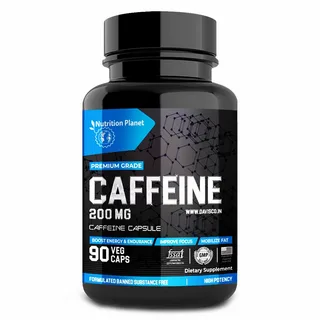Caffeine, a natural stimulant found in various plants, is perhaps one of the most widely consumed psychoactive substances worldwide. It occurs naturally in coffee beans, tea leaves, cacao beans, and other sources. Caffeine is also synthesized and added to many beverages, foods, and dietary supplements. Its stimulating effects on the central nervous system make it a popular choice for boosting alertness, enhancing cognitive function, and improving physical performance. This comprehensive guide explores the extensive advantages of caffeine supplements, encompassing traditional uses, scientific research, and practical considerations for those interested in integrating this widely consumed substance into their health regimen.
Stimulating Effects and Cognitive Enhancement
One of the primary benefits of caffeine supplements lies in their stimulating effects on the central nervous system. Caffeine works by blocking the action of adenosine, a neurotransmitter responsible for promoting relaxation and sleepiness. By inhibiting adenosine, caffeine promotes wakefulness, alertness, and mental focus. Caffeine supplements can enhance cognitive function, including attention, memory, and reaction time, making them a popular choice for students, professionals, and individuals seeking improved mental performance. Additionally, caffeine’s stimulating effects may help alleviate fatigue, increase motivation, and enhance mood, contributing to overall well-being and productivity.
Physical Performance Enhancement
Caffeine supplements are widely used by athletes and fitness enthusiasts to enhance physical performance and endurance. Caffeine has been shown to increase adrenaline levels, mobilize fatty acids from fat tissues, and improve muscle contractions, leading to enhanced exercise performance and endurance. Studies have demonstrated that caffeine supplementation can improve strength, power, and endurance during both aerobic and anaerobic exercise. Additionally, caffeine may help reduce perceived exertion and fatigue, allowing individuals to exercise at higher intensities for longer durations. These ergogenic effects make caffeine supplements a popular choice for athletes looking to optimize their training and performance.
Weight Management and Metabolic Effects
Caffeine supplements may offer benefits for weight management and metabolic health. Caffeine has been shown to increase metabolic rate, thermogenesis (the production of heat in the body), and fat oxidation, leading to increased calorie expenditure and fat loss. Additionally, caffeine may help suppress appetite and reduce food intake, leading to decreased calorie consumption and potential weight loss benefits. While caffeine alone is not a magic bullet for weight loss, it may complement a healthy diet and exercise regimen by supporting fat loss and metabolic function.
Antioxidant Properties
Caffeine supplements contain potent antioxidant properties, which contribute to their overall health-promoting effects. Antioxidants help neutralize harmful free radicals in the body, reducing oxidative stress and inflammation. Caffeine’s antioxidant activity has been shown to protect cells from oxidative damage, reduce the risk of chronic diseases such as heart disease, diabetes, and cancer, and promote overall health and longevity. Additionally, caffeine may help protect against age-related cognitive decline and neurodegenerative disorders by supporting brain health and function.
Practical Considerations and How to Take Caffeine Supplements
Caffeine supplements are available in various forms, including tablets, capsules, powders, and energy drinks. The appropriate dosage of caffeine supplements may vary depending on individual tolerance, sensitivity, and health status. It’s essential to start with a low dose and gradually increase as needed to assess tolerance and minimize the risk of side effects. The recommended dosage for most adults is typically between 100-400 milligrams per day, depending on individual factors such as body weight, caffeine tolerance, and sensitivity.
While caffeine supplements are generally safe for most individuals when taken in moderation, excessive consumption can lead to side effects such as jitteriness, insomnia, anxiety, and gastrointestinal upset. Pregnant and breastfeeding women, individuals with certain medical conditions (such as heart disease, anxiety disorders, or gastrointestinal disorders), and those taking medications should exercise caution and consult with a healthcare professional before using caffeine supplements. Additionally, caffeine supplements should be avoided or used with caution in children and adolescents, as excessive caffeine consumption can have adverse effects on developing brains and bodies.
Conclusion
Caffeine supplements offer a wide range of potential health benefits, from stimulating effects and cognitive enhancement to physical performance enhancement and weight management support. With their long history of use and extensive scientific research, caffeine supplements stand as a valuable tool for enhancing mental and physical performance, promoting metabolic health, and supporting overall well-being. However, it’s essential to use caffeine supplements responsibly and in moderation, considering individual tolerance, sensitivity, and health status. By incorporating caffeine supplements into a balanced lifestyle, individuals can harness the benefits of this widely consumed stimulant to optimize their health and performance.
- Sip, Savor, and Elevate: A Spirited Review of Melo’s THC Beverages - May 20, 2024
- Benefits of Caffeine Supplements - April 2, 2024
- Benefits of Couch Grass Supplements - April 2, 2024

